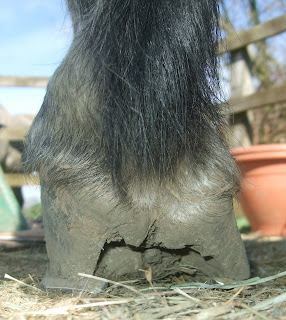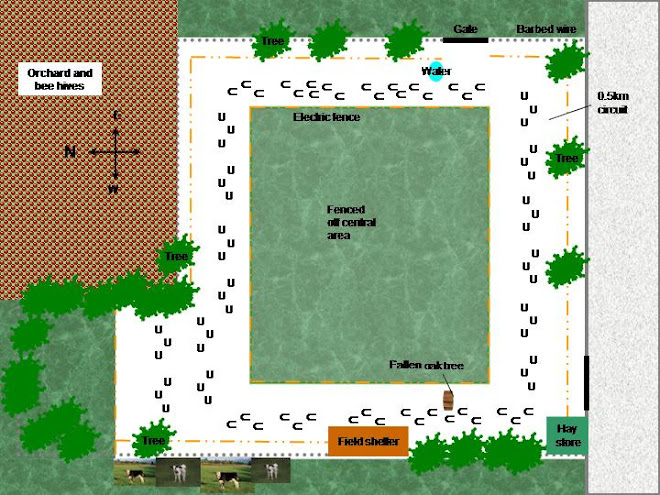And of that outwardly solid structure there is one section which can cause enormous heartache and pain, whilst being largely ignored and when noticed frequently misunderstood. Yet this section is also capable of impressive transformations which often go unnoticed. What am I referring to? Heel bulbs of course.
Hence the title
"Weebles wobble but they don't fall down."Which means to me at least, that the heel bulbs can be in terrible shape, but the poor horse attached to them will still struggle on. Until they reach the point of catastrophic failure anyway.
When you know what to look for the signs are obvious.
Personally I like heel bulbs to be substantial, plump, full bodied, balanced. These qualities hint at well developed lateral cartilages which are a vital part of properly functioning hoof. I also tend to find them attached to hard working, high performance hooves. Soggy, squishy, underdeveloped, pointy heel bulbs are generally attached to hooves which are in poor shape one way or another.
 |
| Can you see the 'wobble' - horse unsound |
 |
| Bulbs bulked up - wobble gone - horse sound |
 |
| Major wobble |
If your hoof anatomy is a little shaky, there is a diagram below. (I never said I could draw...) If you want to you might like to try to apply that drawing to the photos. Then compare the anatomy drawing with my rough sketch of a hoof I saw recently (below). Can you see what is happening? The horse was not comfortable. There was other 'stuff' going on, but leaving the foot out of balance wasn't helping. It will take time to address the balance for that hoof (it's not just a matter of lopping a bit off the bottom), but early signs are good.










No comments:
Post a Comment